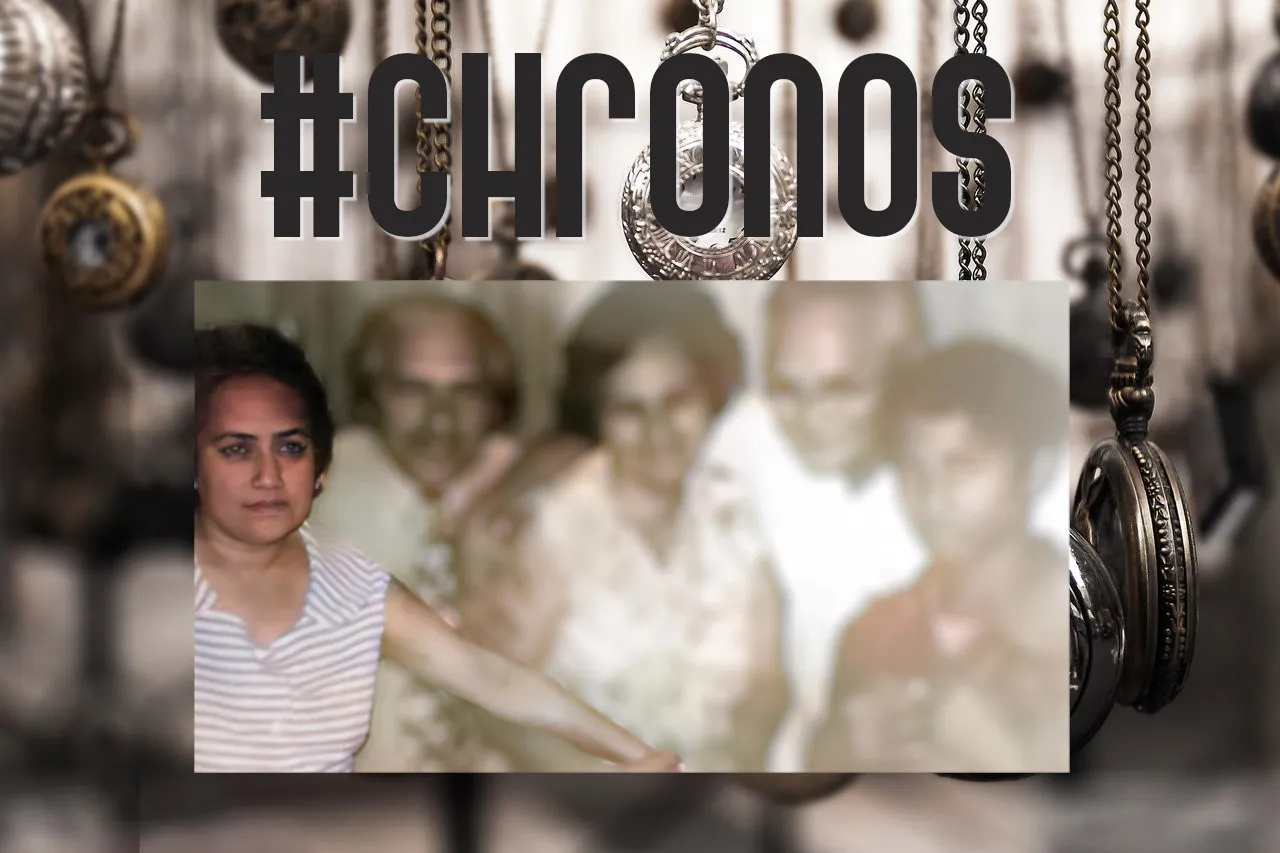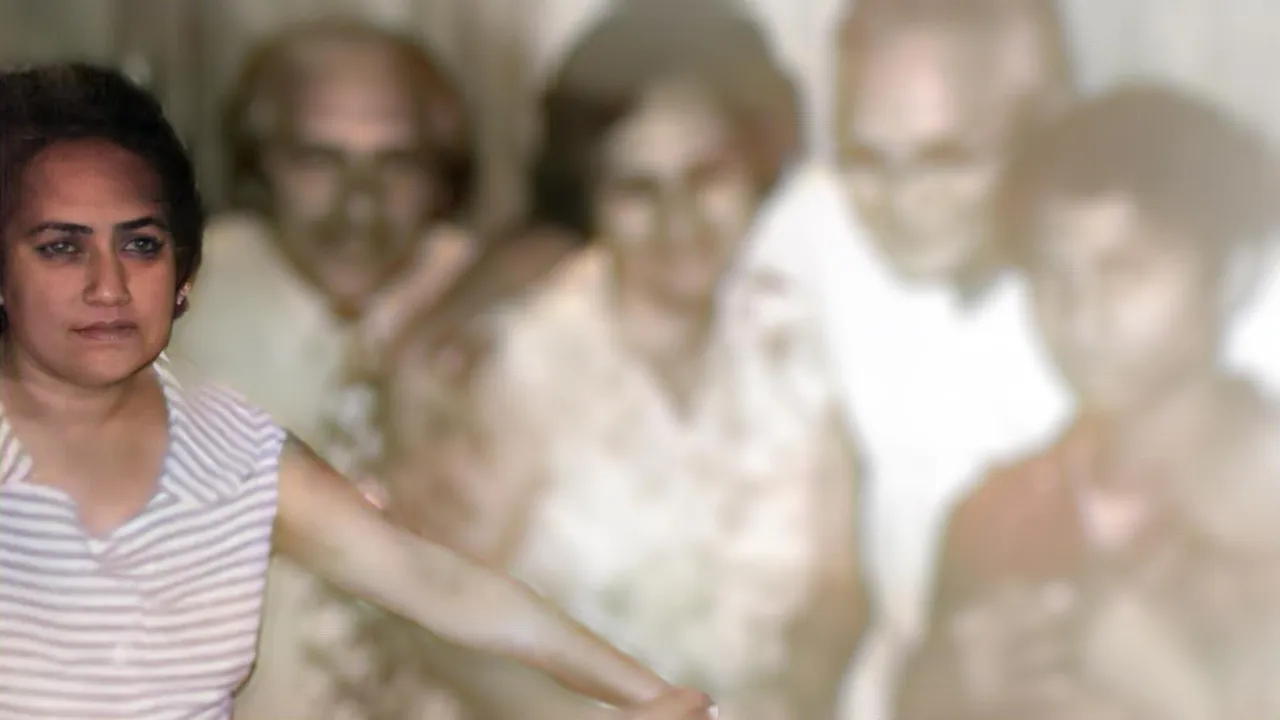Muchas veces hay personas que lo marcan a uno en actitudes y no porque sea una persona ejemplar o modelo, sino que tienen determinadas cualidades que te quedan grabadas.
También es cierto que el tiempo hace mella en los recuerdos, pero las cosas que logro recordar del personaje que menciono hoy acá, son esas, una actitud tranquila, no quejarse, a pesar de los pesares y hay que ver que ella los tenía.
Sí sé que no era un persona fácil, como no lo fue su vida, pero ella supo vivir su destino a su manera sin torturarse por lo malo y en cambio dsifrutar de los pequeños detalles que le regalaba la vida.
¡Algo que trato de emular en mi día a día!
Many times there are people who mark you in attitudes and not because they are an exemplary person or a model, but because they have certain qualities that remain engraved in your memory.
It is also true that time takes its toll on memories, but the things I can remember about the character I mention here today, are those, a calm attitude, not complaining, despite the sorrows and you have to see that she had them.
Yes I know she was not an easy person, as her life was not, but she knew how to live her destiny in her own way without torturing herself for the bad things and instead enjoy the small details that life gave her.
Something I try to emulate in my day to day life!
English version below!

Mi tía Isbelia fue una de esas personas que suelen llamar en Venezuela “acontecidas”. Uno de esos seres que les toca pasar por muchas cosas. Sin embargo, entre los once hermanos fue una de las que disfrutó del apellido de mi abuelo, al igual que sus otros cinco hermanos de padre y madre.
A ella le costaba aprender, las letras y los números no se le daban fácil. Quizá por eso se fue quedando relegada en comparación con sus hermanos y fue convirtiéndose en algo así como la oveja negra de la familia.
Pero no todo era malo, aunque lo bueno tampoco lo fuera del todo. Isbelia se consiguió un buen marido, que la quería y con quien pronto tuvo su único hijo, Elio, quien sin duda heredó de ella el ser “acontencido”.
El esposo de Isbelia era un hombre trabajador y sin llegar a ser rico, tenía sus buenos fondos. Lo que no tenía él era un buen testamento. Así que, con un matrimonio reciente y un bebé pequeño, al morir en un accidente de tránsito, dejó la mesa servida para que la familia de él, dejara a mi tía Isbelia sin un céntimo de la fortuna que le correspondía. Pero ella no era de rencores y a lo largo de su vida siguió siendo amiga de quienes la habían despojado a ella y a su hijo, de un futuro más cierto y seguro.
Con Elio no tuvo más suerte tampoco, pues siendo un niño todavía, enfermó y una meningitis lo limitó mentalmente por el resto de sus días. Días que también merecerían más de un capítulo en estos espacios.
Pero Isbelia no se quejaba. A pesar de pasar su vida dependiendo de los demás y sin más recursos que la pensión de sobreviviente que le dejó su esposo y que afortunadamente nadie se la pudo quitar, ella vivía su día a día feliz a su manera. Siempre un aire de picardía y coquetería en su mirada. Siempre buen ánimo y cordialidad, lo que la ayudaba en su tarea de conseguir que le regalaran un cigarrillo. Porque eso sí que era importante para ella, un cigarro que, dependiendo de la cantidad disponible, podía fumárselo en una sola tanda, o cuando escaseaba, podía prenderlo y apagarlo para prolongar su nicotínico deseo. Fumar sí que sabía hacerlo bien y para demostrarlo, te mostraba cómo era capaz de fumar con la candela hacia adentro. Hacer aros de humo era otra de sus grandes habilidades.
Pero era tal su fortaleza de ánimo, que ni siquiera el lupus que le detectaron, fue capaz de hacerla perder su sonrisa.
Su actividad preferida era “hacer los mandados”, ir de compras podía hacerlo todas las veces que fuera necesario. En esas salidas aprovechaba para saludar a todos los vecinos, a la señora de kiosco, al zapatero, a los señores de la línea de taxi.
A pesar de su incapacidad de hacerse cargo de nada, Isbelia siempre estuvo pendiente de su hijo y el amor que se profesaban el uno al otro, era algo excepcional.
No vale la pena enumerar los golpes que llevó, las caídas que tuvo, los accidentes... porque en ella nunca hicieron mella.
Inclusive después de morir, Isbelia siguió con esa vida tan accidentada. Luego de su velorio, nos fuimos en caravana al cementerio. En el camino, la carroza fúnebre se accidentó y no hubo forma de repararla. Tampoco la funeraria disponía de otro carro, así que hubo que llamar una grúa.
Isbelia llegó hasta el cementerio, a su lecho final, en una carroza arrastrada por un camión grúa. Mientras todos los presentes comentábamos:
— ¡Es que esa es Isbelia y solo ella!


English version
My aunt Isbelia was one of those people who are usually called " happened" in Venezuela. One of those people who have to go through many things. However, among the eleven siblings, she was one of those who enjoyed my grandfather's surname, just like her other five siblings.
She had difficulty learning, letters and numbers did not come easily to her, maybe that's why she was left behind compared to her siblings and became something like the black sheep of the family.
But it was not all bad, although the good was not all good either. Isbelia got herself a good husband, who loved her and with whom she soon had her only son, Elio, who undoubtedly inherited from her being "happened".
Isbelia's husband was a hard-working man and without being rich, he had his good funds. What he did not have was a good testament. So, with a recent marriage and a small baby, when he died in a traffic accident, he left the table set for his family to leave my Aunt Isbelia without a penny of the fortune she was entitled to. But she was not one for grudges and throughout her life she remained friends with those who had robbed her and her son of a more certain and secure future.
With Elio she had no more luck either, because when he was still a child, he fell ill and a meningitis limited him mentally for the rest of his days. Days that would also deserve more than one chapter in these spaces.
But Isbelia did not complain. In spite of spending her life depending on others and with no other resources than the survivor's pension left to her by her husband, which fortunately no one could take away, she lived her day to day life happily in her own way. Always an air of mischievousness and coquetry in her eyes. Always good spirits and cordiality, which helped her in her task of getting a cigarette as a gift. Because that was really important to her, a cigarette that, depending on the amount available, she could smoke in a single batch, or when it was scarce, she could light it and extinguish it to prolong her nicotine craving. He knew how to smoke well, and to prove it, he would show you how she was able to smoke with the candle facing inward. Making smoke rings was another of her great skills.
But such was her strength of spirit that not even the lupus she was diagnosed with was able to make her lose her smile.
Her favorite activity was "running errands", she could go shopping as often as necessary. On these outings she would take the opportunity to greet all the neighbors, the lady at the kiosk, the shoemaker, the cab drivers.
In spite of her inability to take care of anything, Isbelia always took care of her son and the love they had for each other was exceptional.
It is not worth enumerating the blows she took, the falls she had, the accidents... because they never made a dent in her.
Even after she died, Isbelia continued with her eventful life. After her wake, we went in a caravan to the cemetery. On the way, the hearse crashed and there was no way to repair it. The funeral home did not have another hearse available either, so we had to call a tow truck.
Isbelia arrived at the cemetery, at her final resting place, in a hearse pulled by a crane truck. While everyone present commented:
— That's Isbelia and only she!
Fuente de las imágenes || Image sources [1] | Y una foto familiar || And a family photo

Este texto pertenece a mi serie #Chronos. Puedes leer más sobre la misma en Mis crónicas literarias. Si es de tu agrado este estilo y quieres sumarte a la creación de crónicas literarias, te invito a usar la etiqueta #chronos para la misma.
This writing is part of my series #Chronos. You can read more about it on My literary chronicles. If you like this style and want to join the creation of literary chronicles, I invite you to use the hashtag #chronos for it.

Descarga el poemario de @Ylich"De la vida, la pasión y de la muerte"¡Haz clic aquí! |  |
|---|

If you don't have an account at Hive yet, I invite you to read my post My Hive Testimony || Mi testimonio Hive
Si aún no tienes cuenta en Hive te invito a leer mi publicación My Hive Testimony || Mi testimonio Hive
